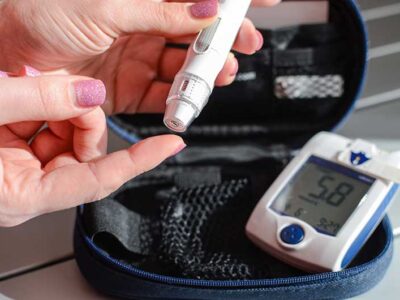Ischemic heart disease, also known as coronary artery disease, affects millions of people around the globe. It occurs when the blood supply to the heart muscle is reduced or obstructed, typically as a result of fatty buildup in the coronary arteries. This can result in a cardiac attack or other life-threatening complications. Understanding the symptoms of ischemic heart disease is essential for early diagnosis and effective treatment. In this in-depth blog, we’ll delve deeper into the key warning indicators you should be aware of to safeguard your heart health.
Comprehension of Ischemic Heart Disease
Before we delve into the warning signs, let’s take a quick look at what causes ischemic heart disease. To function properly, the heart requires a constant flow of oxygen-rich blood. The coronary arteries are responsible for supplying this blood to the heart muscle. When these arteries become constricted or obstructed by atherosclerosis (the buildup of cholesterol and fatty deposits), the heart’s blood supply decreases, resulting in a variety of symptoms and an increased risk of heart attacks.
1.Chest Ache (Angina)
Chest pain or discomfort, also known as angina, is the most prevalent sign of ischemic heart disease. This discomfort can range from a moderate, dull ache to a severe, crushing feeling. It occurs when the cardiac muscle does not receive sufficient oxygen-rich blood. In addition to discomfort in the limbs, neck, jaw, shoulder, and back, angina may also manifest as discomfort in the neck, jaw, shoulder, or back. Typically, the pain is triggered by physical exertion or emotional tension, and it subsides with rest.
2.Insufficiency of Breath
If you experience shortness of breath even during light physical activity or while at leisure, this could indicate heart trouble. This shortness of breath, known as dyspnea, is caused by the heart’s inability to effectively pump blood due to constricted coronary arteries. It may be accompanied by a sensation of chest constriction.
3.weariness
Ischemic heart disease may also be characterized by unexplained and persistent fatigue. When your heart isn’t receiving enough circulation, it has to work harder to meet the body’s demands, which can leave you feeling unusually exhausted, particularly after physical exertion. This fatigue can hinder your ability to perform daily tasks.
4.Heart Fluttering
Ischemic heart disease is frequently associated with irregular heartbeats or palpitations. You may experience a sensation of your pulse racing, fluttering, or skipping beats. These feelings can be disturbing and should not be disregarded. Palpitations may indicate arrhythmias, which, if left untreated, can have severe consequences.
5.Perspiring
Excessive perspiration, especially when accompanied by other symptoms such as chest pain or shortness of breath, may be an indication of an impending cardiac problem. It is frequently described as chilly and damp perspiration. The burden placed on the heart muscle by ischemic heart disease causes the body to perspire.
6.Nausea and Vertigo
Some individuals with ischemic heart disease may experience nausea or vertigo, symptoms that can be misconstrued for those of other conditions. If you experience sudden dizziness or vertigo, especially in conjunction with other symptoms, you must seek medical attention immediately. These symptoms may result from a decrease in blood flow to the brain.
7.Jawache or Toothache
Surprisingly, mandible or tooth pain can occasionally indicate ischemic heart disease. The discomfort may radiate from the chest to the mandible, simulating a dental issue. If you have inexplicable oral pain in addition to other symptoms, you should not rule out heart disease. The connection between jaw pain and heart disease is poorly understood, but it highlights the importance of contemplating all symptoms.
The conclusion
Important for early intervention and effective treatment of ischemic heart disease is the ability to recognize its symptoms. Seek immediate medical attention if you or someone you know experiences any of these symptoms, particularly if they are persistent or severe. Managing the condition and reducing the risk of heart attacks and other complications can be aided by early diagnosis and changes in lifestyle. Remember that heart health is important, and recognizing the warning signs is the first step toward a healthier and happier existence. Regular doctor visits and adopting a heart-healthy lifestyle can go a long way toward preventing and treating ischemic heart disease. Prioritize your heart health immediately.



